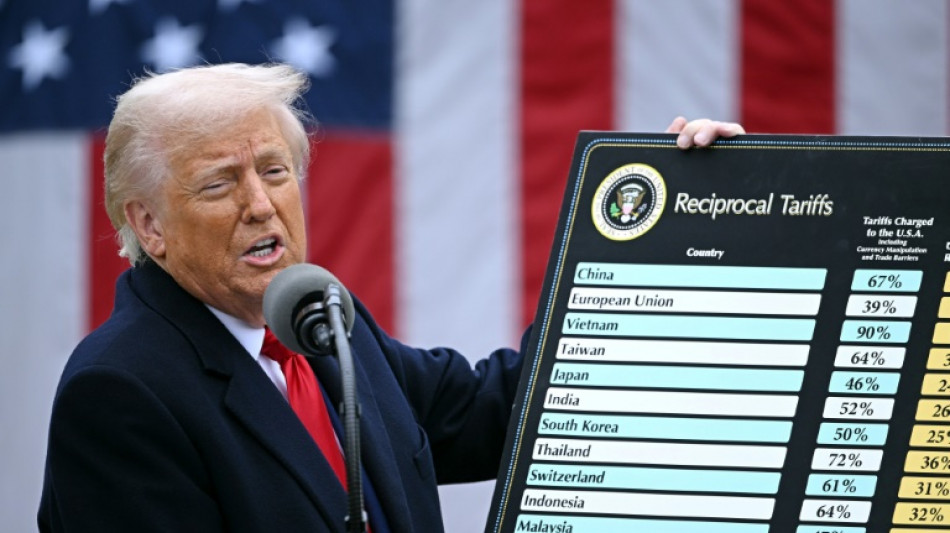
US appeals court finds Trump's global tariffs illegal

A US appeals court on Friday ruled that many of President Donald Trump's tariffs, which have upended global trade, were illegal -- but allowed them to remain in place for now, giving him time to take the fight to the Supreme Court.
The 7-4 ruling by the US Court of Appeals for the Federal Circuit affirmed a lower court's finding that Trump had exceeded his authority in tapping emergency economic powers to impose wide-ranging duties.
But the judges allowed the tariffs to stay in place through mid-October.
The decision marks a blow to the president, who has wielded duties as a wide-ranging economic policy tool.
It could also cast doubt over deals Trump has struck with major trading partners such as the European Union, and raised the question of what would happen to the billions of dollars collected by the United States since the tariffs were put in place if the conservative-majority Supreme Court does not back him.
Trump on Friday lashed out at the ruling, saying on his Truth Social platform that the appeals court "incorrectly said that our Tariffs should be removed, but they know the United States of America will win in the end."
He added that he would fight back "with the help of the United States Supreme Court."
Since returning to the presidency in January, Trump has invoked the International Emergency Economic Powers Act (IEEPA) to impose "reciprocal" tariffs on almost all US trading partners, with a 10-percent baseline level and higher rates for dozens of economies.
He has invoked similar authorities to slap separate tariffs hitting Mexico, Canada and China over the flow of deadly drugs into the United States.
Friday's ruling noted that "the statute bestows significant authority on the President to undertake a number of actions in response to a declared national emergency, but none of these actions explicitly include the power to impose tariffs, duties, or the like, or the power to tax."
It added that it was not addressing if Trump's actions should have been taken as a matter of policy or deciding whether IEEPA authorizes any tariffs at all.
Instead, it sought to resolve the question of whether Trump's "reciprocal" tariffs and those imposed over trafficking were authorized, with the document noting: "We conclude they are not."
The US Court of International Trade ruled in May that Trump had overstepped his authority with across-the-board global levies.
Several legal challenges have been filed against the tariffs Trump invoked citing emergencies.
If these tariffs are ultimately ruled illegal, companies could possibly seek reimbursements.
E.Robert--PS

 London
London

 Manchester
Manchester
 Glasgow
Glasgow
 Dublin
Dublin
 Belfast
Belfast
 Washington
Washington
 Denver
Denver
 Atlanta
Atlanta
 Dallas
Dallas
 Houston Texas
Houston Texas
 New Orleans
New Orleans
 El Paso
El Paso
 Phoenix
Phoenix
 Los Angeles
Los Angeles



